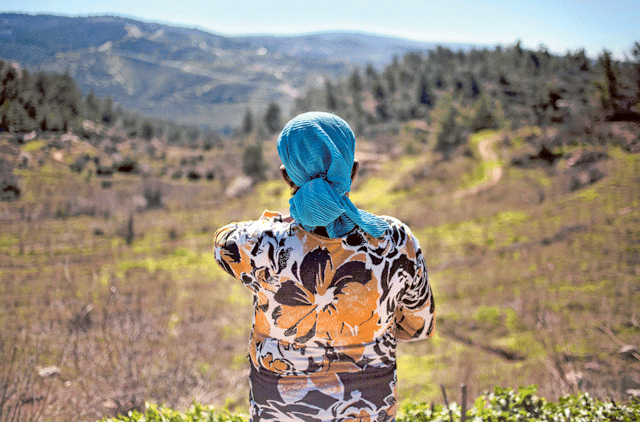
Occupied Jerusalem: Accusations that Israel deliberately tried to curb birth rates among Ethiopian immigrants have reopened a debate over discrimination against the group - highlighting the state’s uneasy relationship with a community that has yet to fully settle into the Israeli mainstream.
Women’s activists and a series of media reports contend that Ethiopian women who immigrated to Israel over the past two decades were coerced into taking a controversial birth control drug without being properly informed of its side effects or being offered alternative contraceptives.
While the allegations have been strongly denied by the government, it remains unclear why so many Ethiopian women were receiving Depo-Provera, a long-acting birth control injection that is rarely prescribed to other Israelis.
Israel’s Health Ministry has denied any wrongdoing and ruled out an investigation. Nonetheless, last month it ordered the country’s HMOs to stop prescribing the drug to Ethiopians unless they are fully aware of the potential side effects, which can include decreased bone mineral density and difficulty getting pregnant for up to two years after the injections stop.
The controversy has shined a fresh light on the Ethiopian community and its place in modern Israel. Believed to be descendants of the lost Israelite tribe of Dan, Ethiopian Jews spent millennia isolated from the rest of the Jewish world. Israel began rescuing groups of Ethiopian Jews from war and famine in clandestine operations in the 1980s, and larger numbers followed in the 1990s.
Today, some 120,000 people of Ethiopian descent live in Israel. Yet two decades after first arriving, Israel’s Ethiopian population continues to struggle. Many work in low-paying menial jobs as security guards and cleaners, and roughly 41 per cent of Ethiopian families live in poverty.
While the younger generation has made some gains, it is still struggling compared to other Israelis and many say they still face discrimination. The latest birth control controversy has taken these grievances to new heights.
“Itzik Dasa, the head of Tebeka, an Ethiopian legal aid group that along with five other rights organizations is collecting testimonies from dozens of Ethiopian women, with the aim of taking Shlomo Molla, a former Israeli lawmaker and Ethiopian immigrant, said he believes the Health Ministry continued to give the women the injections, which were first administered in Ethiopian transit camps, once they arrived in Israel out of negligence.
“It was a failure of the Health Ministry. It shouldn’t have given the women what they received in Ethiopia automatically,” he said.
Depo-Provera has been used under controversial circumstances in the past. Testing and use was limited almost exclusively to women in developing countries and poor women in the United States, leading to charges that the test subjects were coerced or ill-informed.
The accusations in Israel first emerged in 2008, when the Yediot Ahronot newspaper published a report showing a disproportionate number of Ethiopian women were receiving injections of Depo-Provera, which is administered once every three months instead of as a daily pill.
The issue resurfaced in December when an investigative TV report claimed that Ethiopian women were told before they immigrated that raising children in Israel is expensive and that they should use birth control to ease the transition. The TV report interviewed more than 30 women, some of whom said they feared they wouldn’t be allowed to immigrate if they didn’t take the drug.
Some said they were not offered any other form of contraceptive and were not told its side effects. The report, broadcast on the state-run educational channel, concluded there was a deliberate plan to keep down Ethiopian birthrates.











